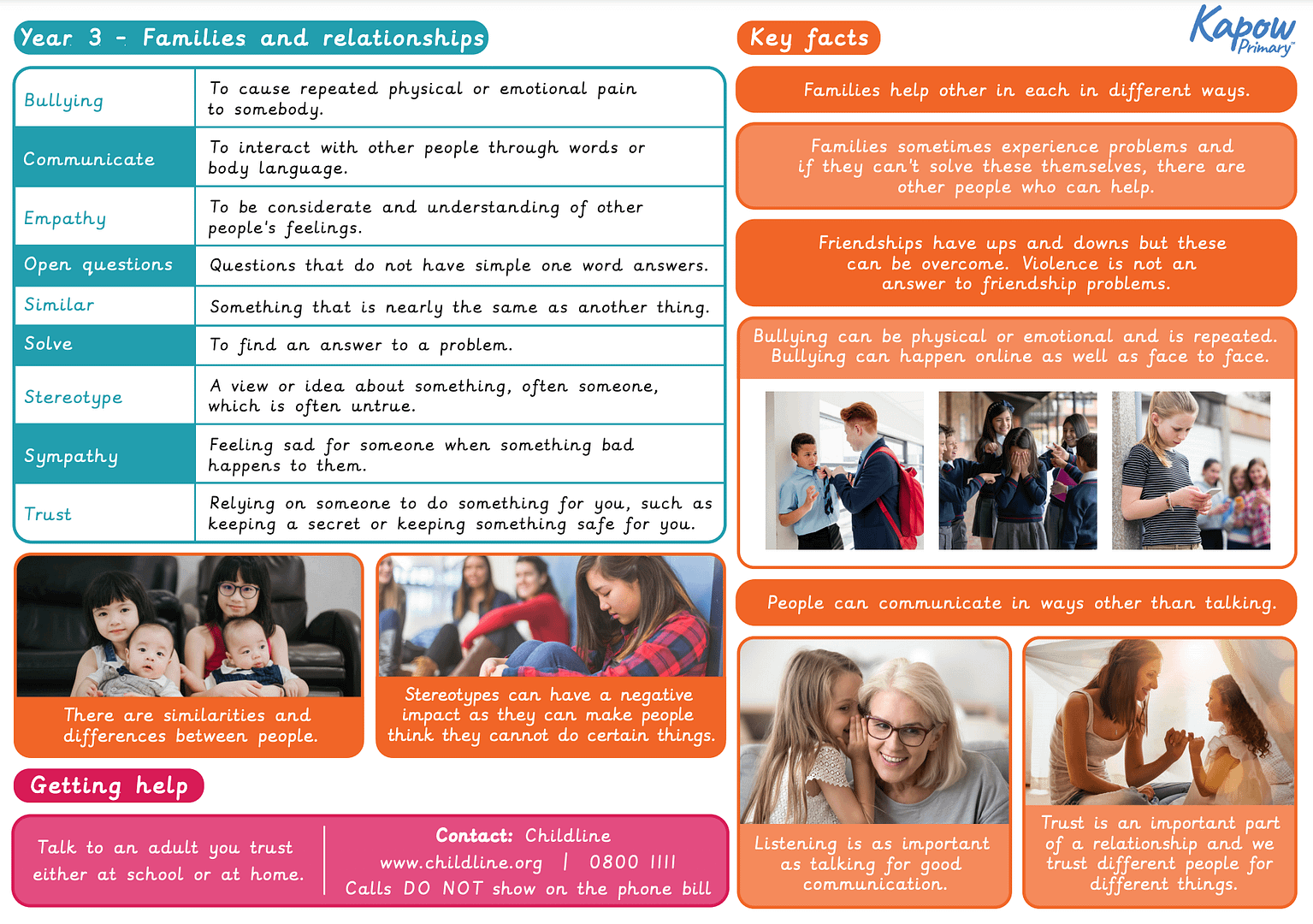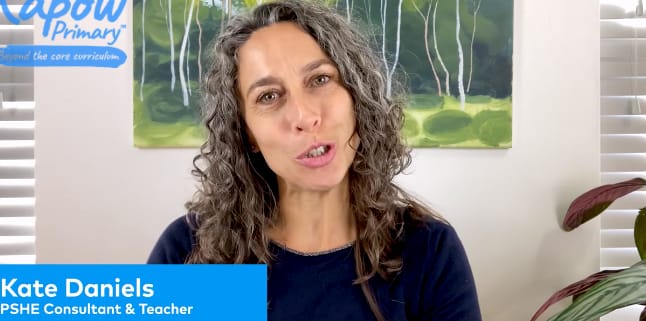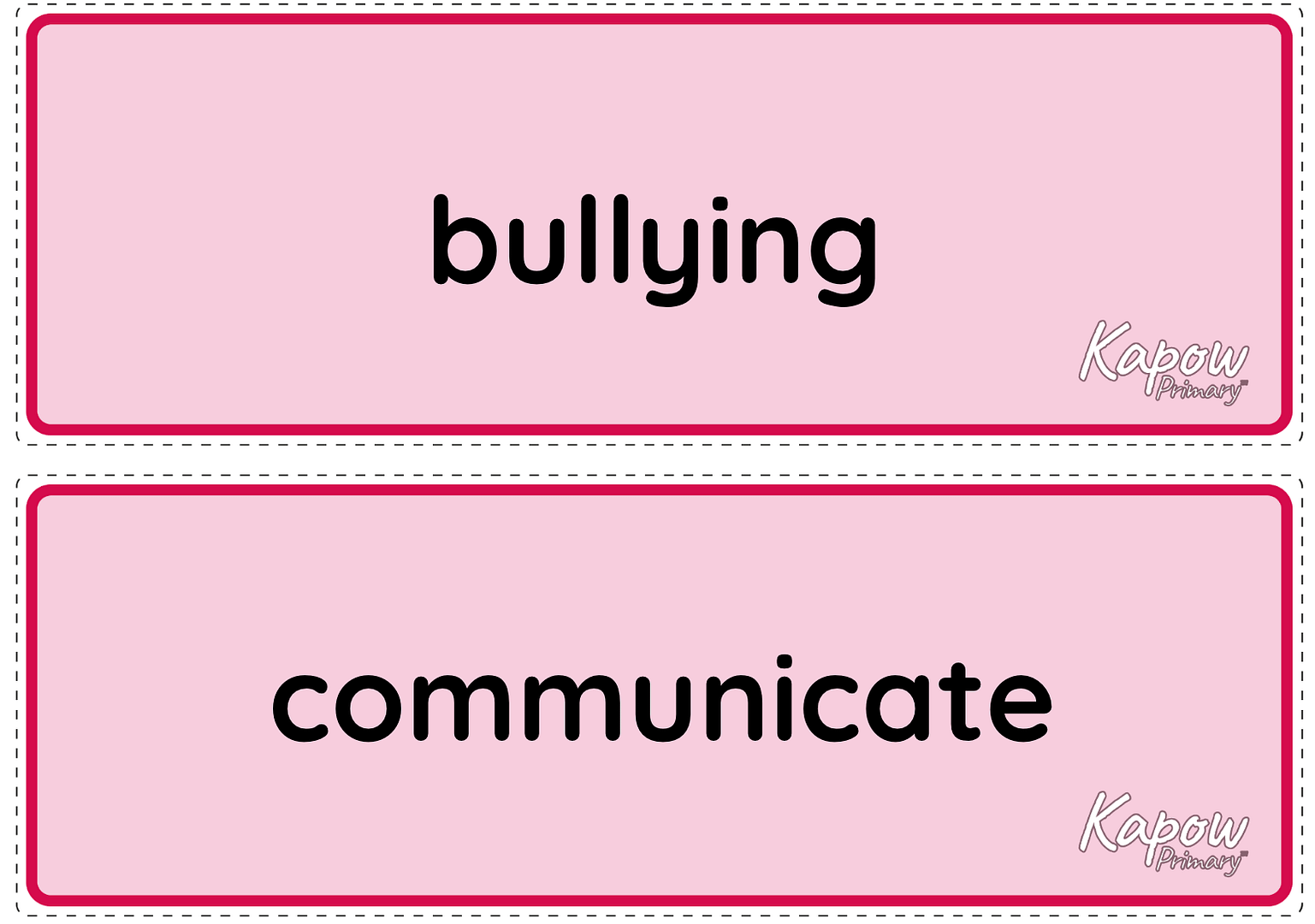Year 3: Families and relationships
This unit hub can be used to inform your medium term plan and to navigate to related resources.
The Curriculum and Assessment Review final report has been released. We’re reviewing the recommendations and planning for future updates. Learn more
- Subjects >
- RSE & PSHE >
- Key stage 2 >
- Year 3 >
-
Y3 Families and relationships
Unit outcomes
Pupils who are secure will be able to:
- Understand that families are all different.
- Know that families offer each other support but sometimes they can experience problems.
- Understand that problems occur in friendships and that violence is never right.
- Understand what bullying is and what to do if it happens.
- Describe what a good listener is and know how to show that they are listening.
- Say who they trust and why.
- Understand that people can have similarities and differences and explain how differences can be a positive thing.
- Understand how toys can reinforce gender stereotypes.
- Understand that stereotypes arise from a range of factors, including some of those associated with age.
Suggested prior learning
Y2 Families and relationships
Get startedLesson plans
Lesson 1: Healthy families
- To understand that families love and support each other but sometimes problems can occur and help is available if needed.
Lesson 2: Friendship conflict
- To understand that friendships have ups and downs and that problems can be resolved.
Lesson 3: Friendship: conflict versus bullying
- To begin to understand the impact of bullying.
Lesson 4: Effective communication
- To listen and communicate effectively.
Lesson 5: Learning who to trust
- To understand why trust is an important part of positive relationships.
Lesson 6: Respecting differences in others
- To begin to understand the differences between people and why it is important to respect these differences.
Lesson 7: Stereotyping: Gender
- To recognise that stereotypes are present in everyday life.
Lesson 8: Stereotyping: Age
- To recognise that stereotypes exist based on a number of factors.
Key skills
Key knowledge
Related content
Unit resources

Knowledge organiser: RSE & PSHE – Y3 Families and relationships
Aimed at pupils, a single page which gives key facts and definitions from the unit "Y3 Families and relationships".

Videos: Families and relationships
A collection of unit-specific Q&A videos with RSE & PSHE Consultants to support the teaching of the families and relationships…

Vocabulary display – RSE & PSHE Y3: Families and relationships
A display version of the key vocabulary from the unit' Families and relationships'.
Cross-curricular opportunities
English
‘Pupils should be taught to:
- listen and respond appropriately to adults and their peers
- ask relevant questions to extend their understanding and knowledge
- maintain attention and participate actively in collaborative conversations, staying on topic and initiating and responding to comments
- participate in discussions, presentations, performances, role play, improvisations and debates
- draft and write by:
- in narratives, creating settings, characters and plot’
See National curriculum - English key stages 1 to 2.
Art and design
‘Pupils should be taught:
- to use drawing, painting and sculpture to develop and share their ideas, experiences and imagination’
See National curriculum - Art key stages 1 to 2.
British values: Mutual respect, Tolerance of those with different faiths and beliefs.
Build on the learning
Y4 Families and relationships
Building on their understanding of PSHE relationships and friendships, pupils deepen their knowledge of boundaries, the impact of bullying, and diverse family structures.

